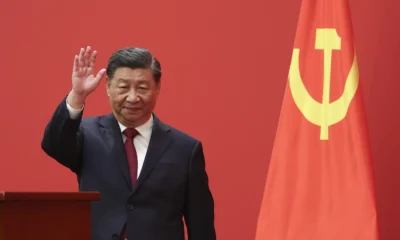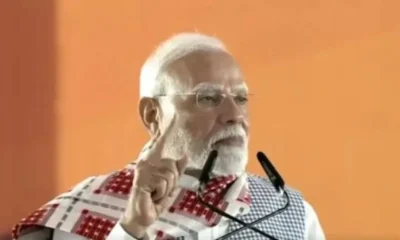The Chinese Embassy in the United States issued a stern warning on Wednesday, stating that China is prepared to engage in any form of conflict, including a trade war, if the U.S. continues to escalate tensions. The statement came in response to President Donald Trump’s imposition of additional tariffs on Chinese goods, citing the fentanyl crisis as a key issue.
“If the U.S. truly wants to solve the fentanyl issue, the right approach is to consult with China as equals. But if war is what the U.S. wants—be it a tariff war, a trade war, or any other type of war—we are ready to fight till the end,” the Chinese Embassy said in a post on X (formerly Twitter).
The embassy’s strong reaction underscores the growing tensions between the two nations, with China accusing the U.S. of using the fentanyl issue as a “flimsy excuse” to justify tariff hikes. In a statement, the Chinese Foreign Ministry emphasized that its countermeasures to protect its rights and interests were “fully legitimate and necessary.”
“The U.S., not anyone else, is responsible for the fentanyl crisis. In the spirit of humanity and goodwill toward the American people, we have taken robust steps to assist the U.S. in addressing the issue. Instead of recognizing our efforts, the U.S. has sought to smear and shift blame to China, using tariff hikes to pressure and blackmail us. They are punishing us for helping them. This approach will not solve the U.S.’s problem and will only undermine our counternarcotics dialogue and cooperation,” the statement added.
The Trump administration recently imposed an additional 10% tariff on Chinese goods, on top of the existing 10% tariffs, citing the fentanyl crisis as a key concern. These new tariffs, which took effect on Tuesday, also target Canada and Mexico over the same issue.
In retaliation, China announced its own set of countermeasures, including additional tariffs ranging from 10% to 15% on a variety of U.S. agricultural products. According to China’s Finance Ministry, the tariffs will apply to products such as soybeans, corn, dairy, beef, pork, sorghum, fruits, vegetables, and aquatic products. Chicken, wheat, corn, and cotton will face a 15% tariff.
Additionally, China has imposed export and investment restrictions on 25 U.S. firms, further escalating the economic standoff between the two nations.
The tit-for-tat measures highlight the deepening rift in U.S.-China relations, with both sides refusing to back down. While the U.S. frames its actions as necessary to address domestic issues like the fentanyl crisis, China views them as unjustified and punitive.
As the trade war intensifies, the global economy faces increasing uncertainty, with industries and consumers in both countries likely to bear the brunt of the escalating tariffs. The Chinese Embassy’s warning of readiness to “fight till the end” signals that Beijing is prepared for a prolonged confrontation, further complicating efforts to de-escalate tensions.
The situation remains fluid, with both nations standing firm on their positions. The international community watches closely as the U.S. and China navigate this high-stakes economic and diplomatic standoff.





















